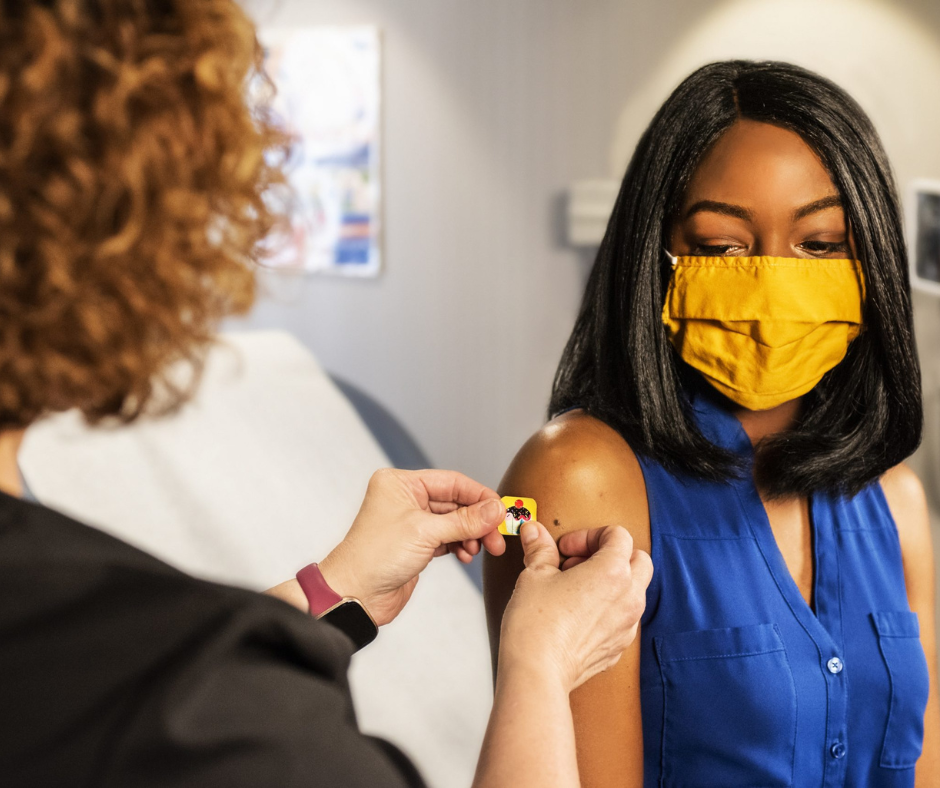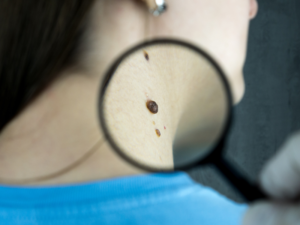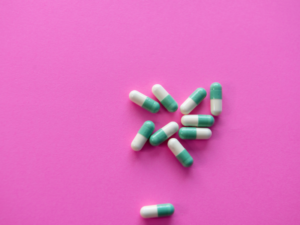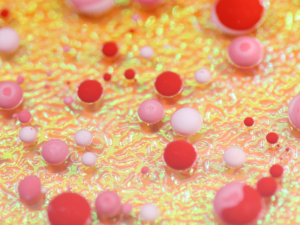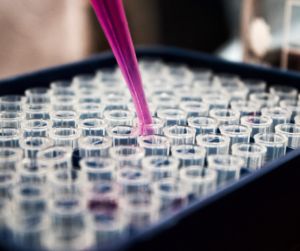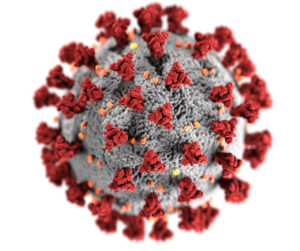Avani Yenamandra, PharmD | Dec 16, 2021 2:00:11 PM
Coronaviruses are a large family of viruses that are common in people and animals. SARS-CoV-2, a novel coronavirus, causes a respiratory disease called coronavirus disease 2019, abbreviated COVID-19.1,2 Immunocompromised patients, especially those who have cancer and undergoing treatment, pose to be at the highest risk of severe and prolonged illness from COVID-19. The National Comprehensive Cancer Network (NCCN), American Society of Hematology (ASH), and American Society of Clinical Oncology (ASCO) have provided resources for practitioners to reference the disease, vaccines, and how best to care for patients with cancer.2
COVID-19 can have a range of effects on cancer patients depending on the type of malignancy. Hematologic malignancies have been reported to have a strong association with increased severity of illness.3-4 Additionally, lung cancer patients have reported high rates of mortality (OR 1.62) than other types of malignancies.5 Mortality among cancer patients ranges from 28 – 39%. Those with hematologic malignancies have twice the mortality rate (50% versus 26.1%) in comparison to those who had received a solid organ transplant.3-5 Cancer patients who have achieved remission and are not on active therapy are not considered high risk for developing COVID-19. In terms of active treatment with cytotoxic chemotherapy, there has seem to be no correlation with cytotoxic chemotherapy and risk of developing COVID-19 in solid malignancies.6 Immunotherapy and targeted therapy in the setting of COVID-19 remains to be an area of uncertainty.6
COVID-19 vaccination is recommended in patients who have cancer and undergoing active treatment.1-2 Delays in receiving the vaccine in cancer patients may be related to hemopoietic stem cell transplant recipients and those receiving chimeric antigen receptor T-cells (CAR-T) for up to three months.1 If patients are receiving intensive cytotoxic chemotherapy especially for hematologic malignancies, it is recommended to delay receiving the vaccine until absolute count recovery. Efficacy for the vaccines among cancer patients is still largely theoretical and antibody production may be blunted in those receiving active treatment. According to emerging data, patients who are receiving B-cell depleting agents (i.e. Rituximab) may not have the protective antibodies that would be able to be developed if given the vaccine.7-8 Therefore, the best recommendation is to provide effective methods of protection through reduction of community spread. Other potential considerations could be to delay vaccination by four weeks.8
All trials for the vaccines (Pfizer, BioNTech, and Janssen/Johnson) included cancer patients. Efficacy data for the vaccines range from 95% – 100% with 67 – 97% effective in preventing severe illness.10-12 Immunologic studies are ongoing for these vaccines and commercially available assays evaluating T-cell responses are lacking.12 Antibody testing post vaccination is not routinely recommended by the FDA as it may be difficult to interpret, therefore, it is hard to confirm the efficacy of the vaccine in cancer patients. Furthermore, there is some data to suggest that there could be a lower antibody response in multiple myeloma (20.6% versus 35% in placebo) and those receiving immunosuppression (37 versus 63%) in placebo.12-13 NCCN and ASCO recommend to still weigh the risks versus benefits of vaccination in this population with the knowledge that vaccination may not be as efficacious. Similar considerations should be made for the third dose of the vaccine.
In conclusion, COVID-19 has a profound effect in cancer patients, particularly those that are receiving treatment. Hematologic malignancies and patients with lung cancer pose the highest risk of developing severe disease and management of illness is similar to that of non-cancer patients. It is still recommended for cancer patients to still get vaccinated as data emerges on the efficacy and antibody production.
References:
- 1. National Cancer Institute. COVID-19 Resources. https://www.cancer.gov/about-cancer/coronavirus/coronavirus-cancer-patient-information
- 2. American Society of Hematology COVID-19 Resources. https://www.hematology.org/covid-19. Published 2021.
- 3. Meng Y, Lu W, Guo E, et al. Cancer history is an independent risk factor for mortality in hospitalized COVID-19 patients: a propensity score-matched analysis. J Hematol Oncol 2020;13(1):75.
- 4. Luo L, Fu M, Li Y, Hu S, Luo J, Chen Z, Yu J, Li W, Dong R, Yang Y, Tu L, Xu X. The potential association between common comorbidities and severity and mortality of coronavirus disease 2019: A pooled analysis. Clin Cardiol. 2020 Dec;43(12):1478-1493.
- 5. Peravali M, Joshi I, Ahn J, Kim C. A Systematic Review and Meta-Analysis of Clinical Characteristics and Outcomes in Patients With Lung Cancer with Coronavirus Disease 2019. JTO Clin Res Rep. 2021 Mar;2(3):100141.
- 6. Wang Z, Wang J, He J. Active and effective measures for the care of patients with cancer during the COVID-19 spread in China. In. Vol 6: American Medical Association;2020:631-632.
- 7. Robilotti EV, Babady NE, Mead PA, et al. Determinants of COVID-19 disease severity in patients with cancer. Nat Med 2020;26(8):1218-1223.
- 8. Huang C, Wang Y, Li X, et al. Clinical features of patients infected with 2019 novel coronavirus in Wuhan, China. Lancet 2020;395(10223):497-506.
- 9. Polack FP, Thomas SJ, Kitchin N, et al. Safety and efficacy of the BNT162b2 mRNA Covid-19 vaccine.N Eng J Med 2020;383(27):2603-2615
- 10. Baden LR, El Sahly HM, Essink B, et al. Efficacy and safety of the mRNA-1273 SARS-CoV-2 vaccine. NEng J Med. 2020 Dec 30:NEJMoa2035389.
- 11. Food and Drug Administration. Vaccines and Related Biological Products Advisory CommitteeMeeting February 26, 2021: FDA Briefing Document.
- 12. Boyarsky BJ, Werbel WA, Avery RK, Tobian AAR, Massie AB, Segev DL, Garonzik-Wang JM. Antibody Response to 2-Dose SARS-CoV-2 mRNA Vaccine Series in Solid Organ Transplant Recipients. JAMA. 2021 Jun 1;325(21):2204-2206.
- 13. Terpos E, Trougakos IP, Gavriatopoulou M, Papassotiriou I, Sklirou AD, Ntanasis-Stathopoulos I, Papanagnou ED, Fotiou D, Kastritis E, Dimopoulos MA. Low neutralizing antibody responses against SARS-CoV-2 in older patients with myeloma after the first BNT162b2 vaccine dose. Blood. 2021 Jul 1;137(26):3674-3676.

Avani Yenamandra, PharmD
Clinical Pharmacy Specialist, Hematology/Oncology – MD Anderson Cancer Center at Cooper University Hospital

